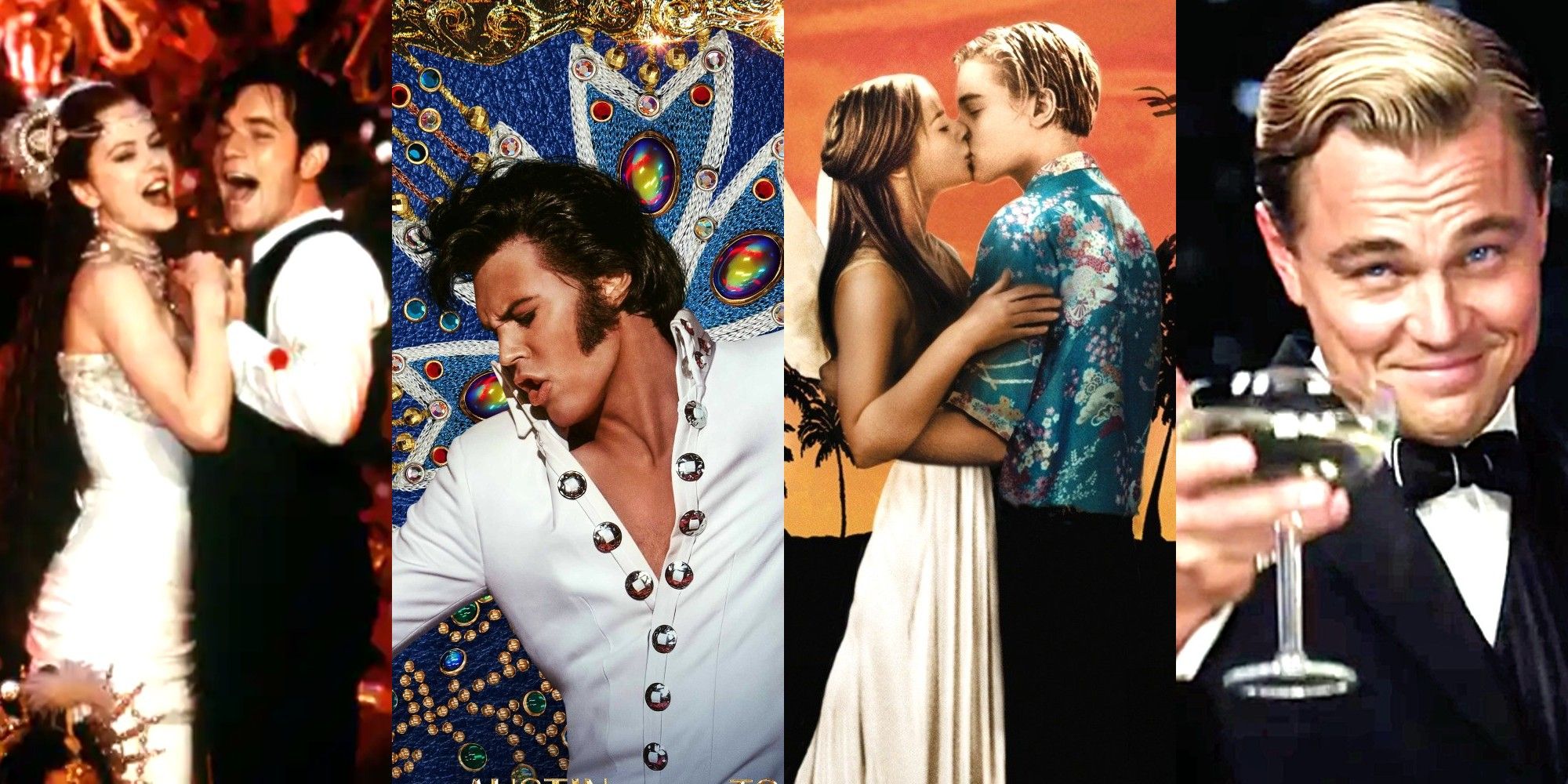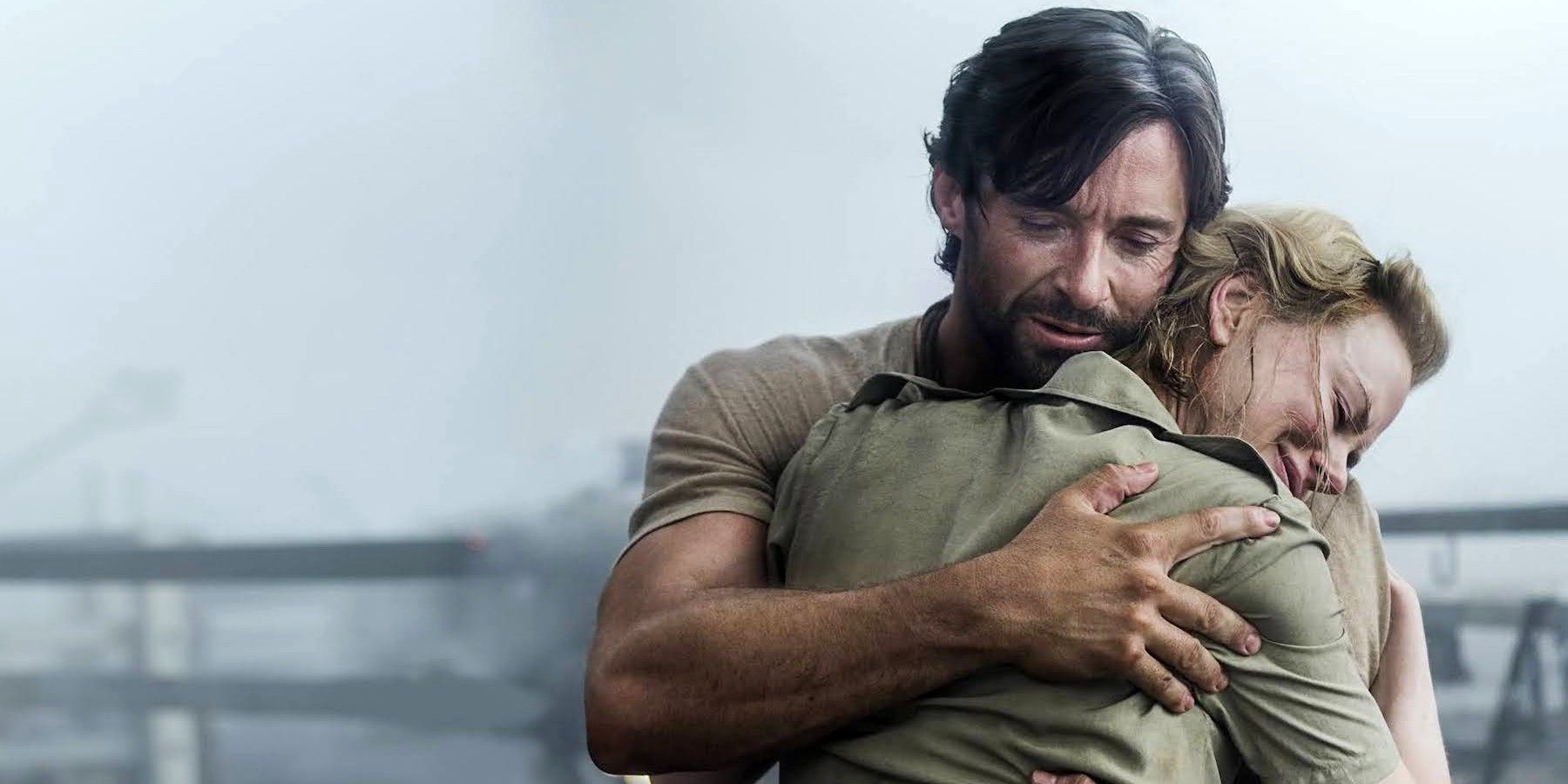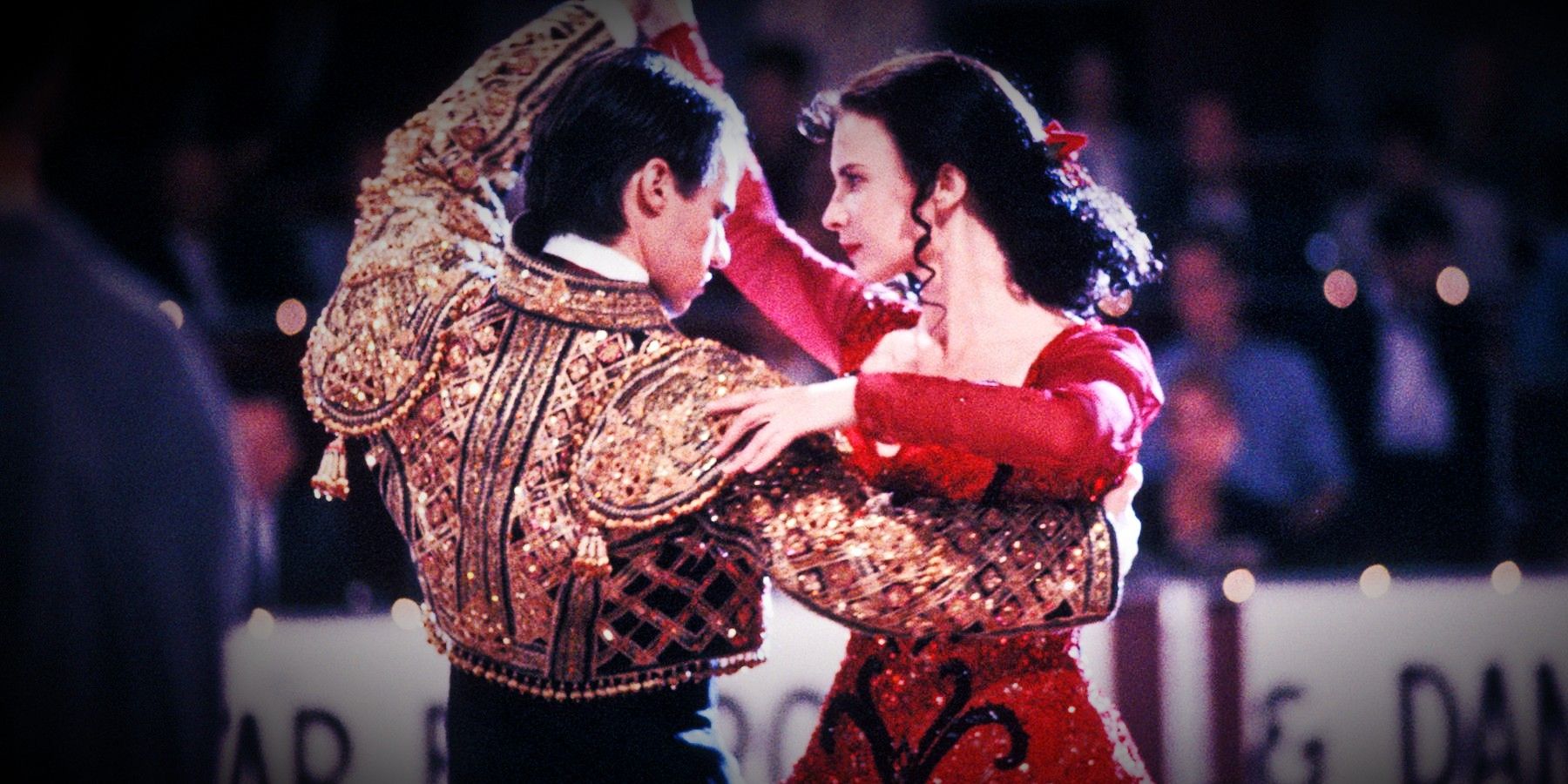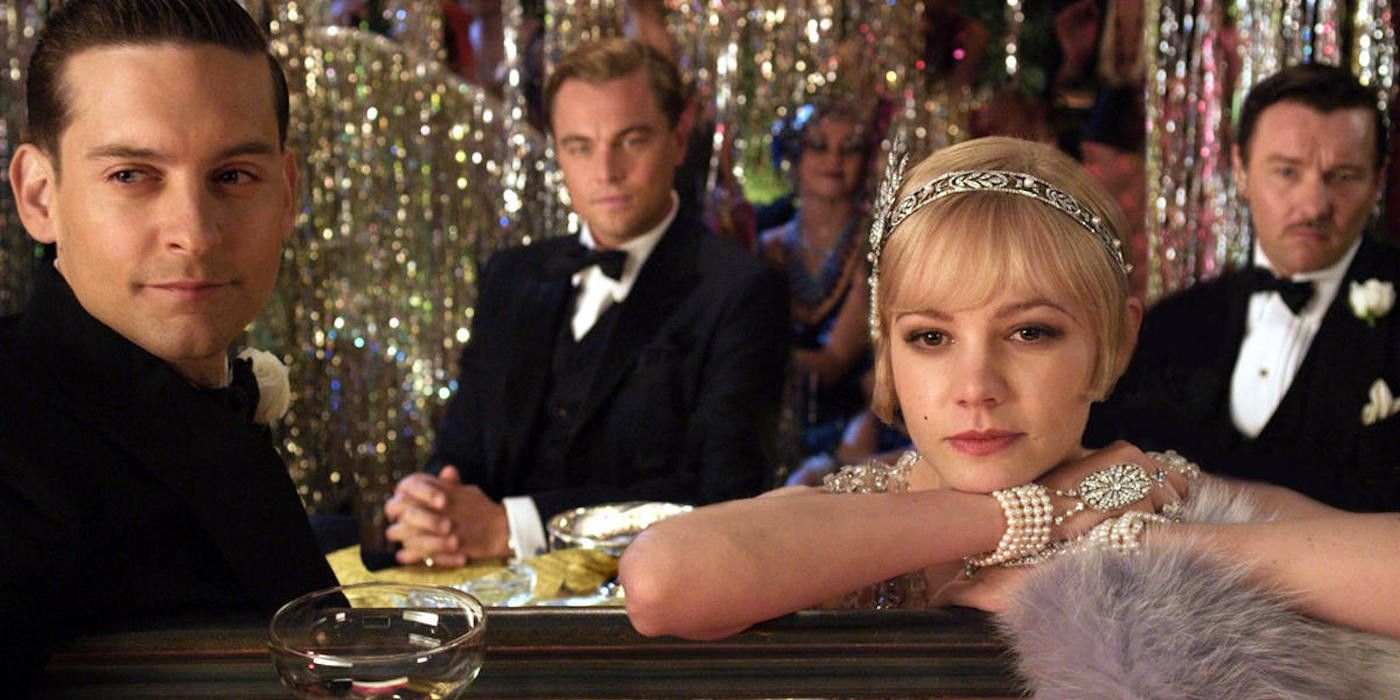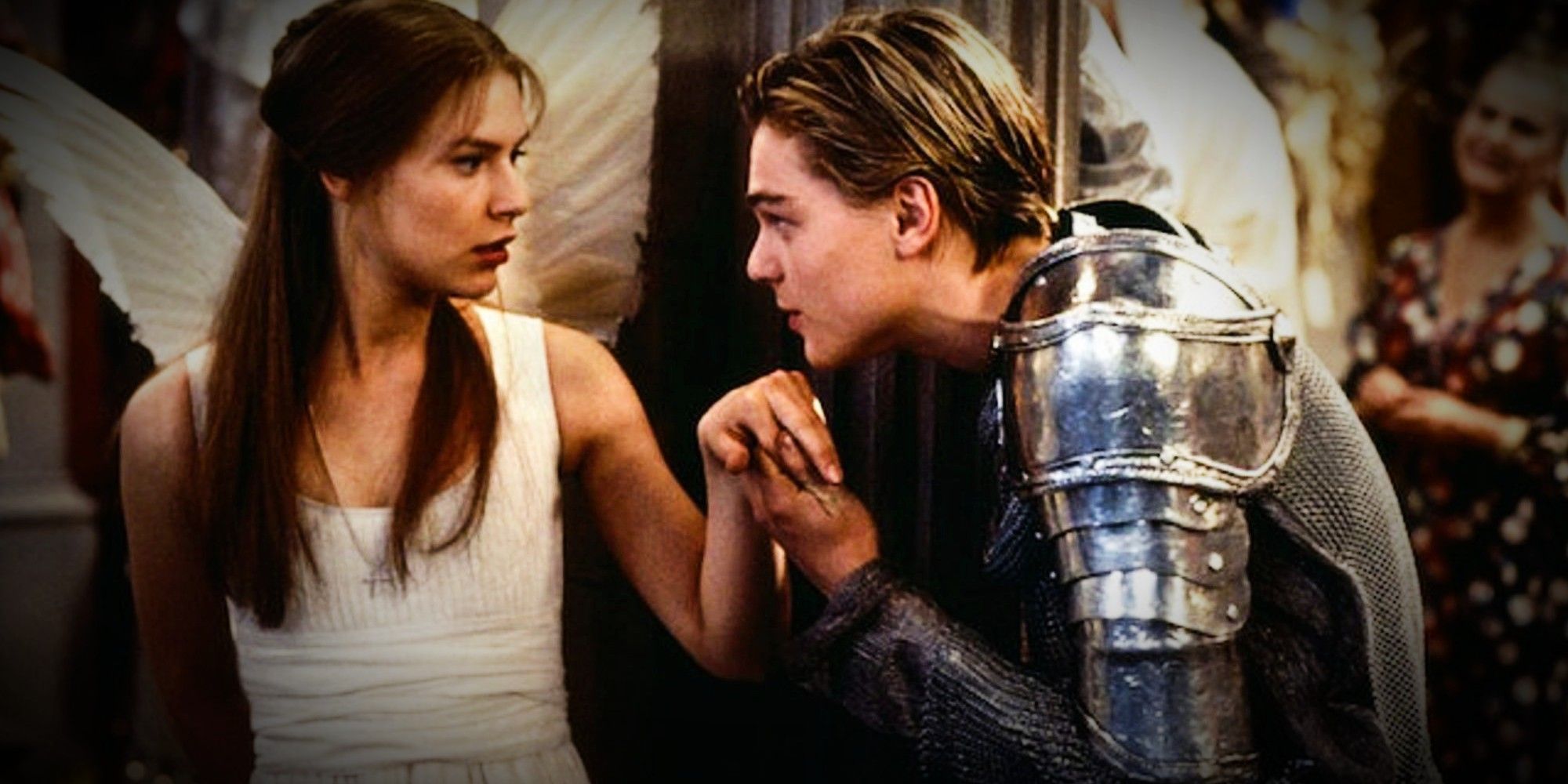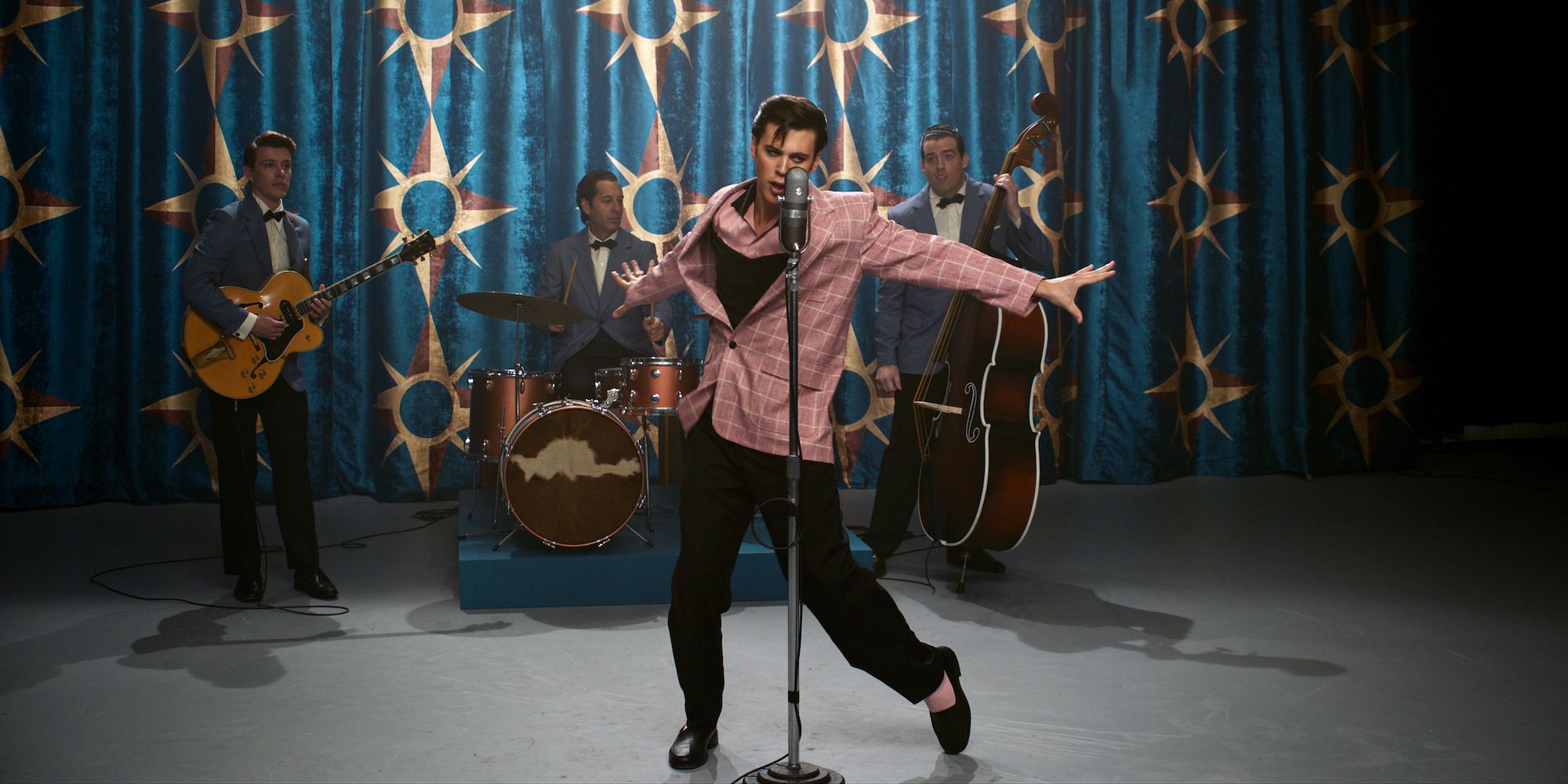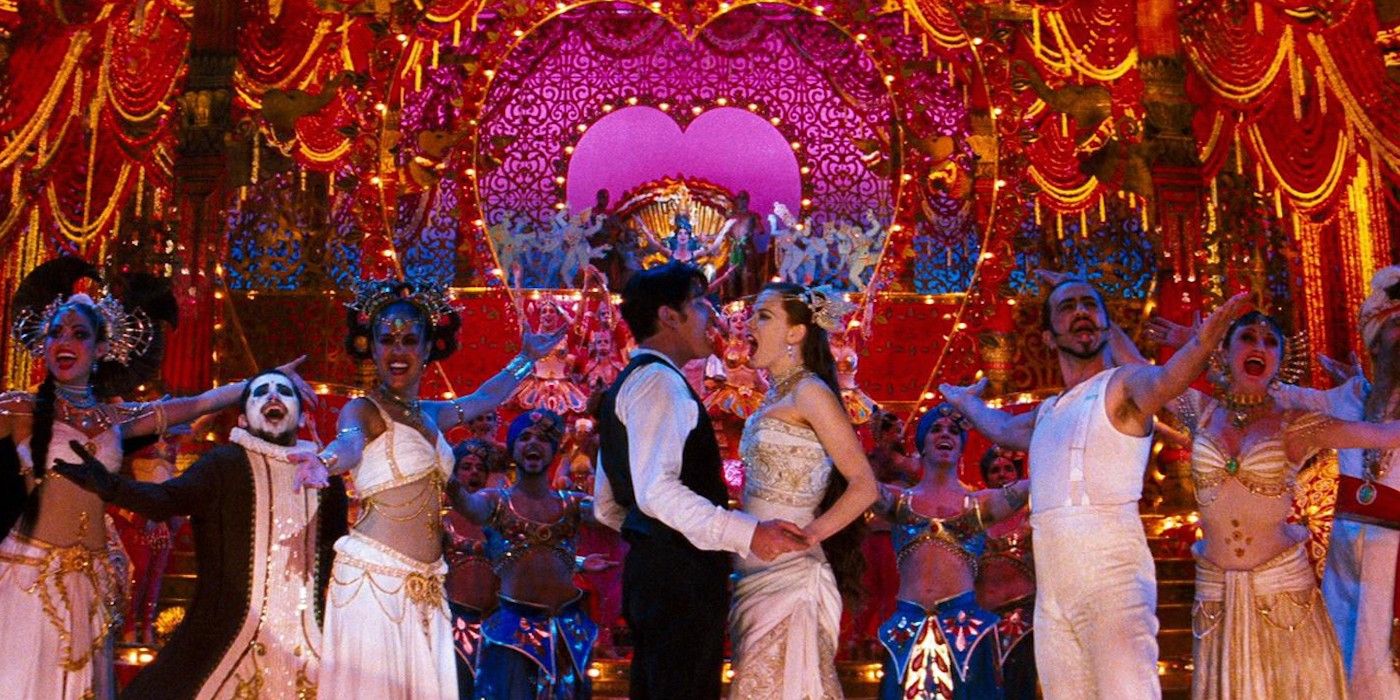When it comes to his films, Baz Luhrmann has a very particular sense of style, making for a fun ranking of his movies, including his most recent, Elvis. The most commercially successful Australian director also works in opera, theater, music, and recording industries, and is extensively involved in art and the world of fashion. In 2004, Luhrman created an extended ad for Chanel titled No. 5 Film. The ad starred Nicole Kidman and Rodrigo Santoro and cost $33 million. The short film ad essentially changed the perfume game into what it is today and maintains its Guinness World Record award for the highest-budgeted commercial of all time – highlighting his exuberant sensibilities.
Before becoming chummy with the likes of Nicole Kidman and Romeo + Juliet's Leonardo DiCaprio, Baz Luhrmann was known as Mark Anthony Luhrmann. Hailing from Sydney, Australia, the auteur's mother is a ballroom dance teacher and his father is a movie theater owner. He was bitten by the acting bug in high school and participated in a number of Shakespeare plays. This is also where he met frequent collaborator Craig Pearce. In 1981, he was cast in the Australian drama film Winter of Our Dreams, and used his earnings to fund his own theater company called The Bond Theatre Company. After graduating from the National Institute of Dramatic Arts he went on to complete his first full-length feature film, Strictly Ballroom, in 1992.
Baz Lurhmann tends to stick to romances mixed with a bit of drama and a whole lot of musical flair and visual flamboyance. The director often combines music and color to establish tone, and each of his shots is carefully curated. Luhrmann's works have been described as post-modern, hyperbolic, intensely choreographed, and outrageously glamorous. On the whole, it's quite difficult to describe Lurhmann's style because it's simply so unique. This is why the director is considered a contemporary auteur. When audiences watch any of the films featured below, it's abundantly clear who made it. Here's a ranking of Baz Lurhmann's films from worst to best.
Australia (2008)
Australia is a drama/action/adventure film set, unsurprisingly, in Australia during 1939. Two weeks before the beginning of World War II, Lady Sarah Ashley (Nicole Kidman) travels to Australia in an effort to convince her husband to sell his cattle station, Faraway Downs. Drover (played by Hugh Jackman) is tasked with bringing Sarah to Faraway Downs. Before she arrives, her husband is killed. The rest of the film follows numerous attempts from antagonists to take the cattle farm, the introduction of the Aboriginal child, Nullah, and the historical attack known as the Bombing of Darwin.
The plot of Australia becomes incredibly convoluted right off the bat. There are far too many different elements in the mix to be able to fully enjoy Sarah, Drover, and Nullah's story. As well, the backdrop of World War II does more to infringe upon the plot than it does to elevate it. However, the film does have its merits. Australia explores the topic of racism against indigenous peoples. Drover has an Aboriginal wife who died on account of the fact that she was denied treatment at a white hospital, and Nullah is constantly being uprooted to the point that he is put in danger during the bombings. It's a rare look at an issue at a time that it wasn't being examined in Hollywood.
Strictly Ballroom (1992)
Strictly Ballroom is a romantic comedy and Elvis director Baz Luhrmann's cinematic debut. The movie follows Scott Hastings (Paul Mercurio) who attempts to cause a ruckus in the world of ballroom dancing. After losing the Southern Districts Waratah Championships because Scott decides to break from the choreography, he decides to take on beginner dancer Fran (Tara Morice) because of her eagerness to follow him. Scott's mother (Pat Thomson) is having none of it and attempts to break the pair up. Ultimately the two's competition number brings down the house, and they fall in love.
The plot follows that of many other dance movies, however, Strictly Ballroom may be one of the Elvis Presley biopic movie director's most personal works. Baz Luhrmann studied ballroom dance as a child and all the way up into his teen years. The film does differ from other typical dance flicks in that it includes a mixture of mockumentary and narrative moments. It's worth noting that the movie was nominated for a Golden Globe, which is quite a feat for a directorial debut. That said, Luhrmann's style is really only beginning to blossom in this film. While it is enjoyable, it's still not the best in terms of displaying his unique touch as a director.
The Great Gatsby (2013)
Based on F. Scott Fitzgerald's classic novel, The Great Gatsby follows writer and Wall Street trader Nick Carraway (Tobey Maguire) as he becomes increasingly interested in the life of his rich neighbor Jay Gatsby (Leonardo DiCaprio). When Nick's cousin Daisy Buchanan (Carey Mulligan) visits with her oppressive husband, an old love affair between Daisy and Gatsby is revealed by Nick's love interest, Jordan (Elizabeth Debicki). Eventually, Gatsby tells Tom about this affair, but the real tragedy of the movie is a fatal accident in which Daisy strikes and kills someone while driving Gatsby's car.
The Great Gatsby follows suit in terms of the aforementioned outrageous glamour. The parties that Gatsby throws rival that of what is mentioned in the books, and the film is full of Lurhmann's unique and swirling, jumping camera work. While the movie certainly looks phenomenal, it lacks in substance. Many critics blame the opulence for sacrificing the story, and it's somewhat true. The actors aren't really given the proper outlet to shine, so much so that even Myrtle's (Isla Fisher) tragic death is overshadowed.
Romeo + Juliet (1996)
Getting back to his theatrical roots, Luhrmann came out with his rendition of the Shakespearian tragedy Romeo + Juliet in 1996. The film features an outstanding cast with Leonardo DiCaprio as Romeo, Clare Danes as Juliet, and the incomparable John Leguizamo as Tybalt. This film is ultimately what put director Baz Lurhmann on the map. The movie takes the classic tale to the present, in the modern suburb of Verona, while still sticking to the original Elizabethan English dialogue. The most heartwrenching moment of the film, when Juliet wakes up just as Romeo is killing himself, left people literally screaming at the screen upon its release.
It's an outstanding performance early in Leonardo DiCaprio's movie career. The actors are able to perform the original script while conveying its meaning to audiences in a universally digestible way. John Leguizamo stands out the most as the murderous Tybalt, cousin of Juliet. Somehow, the mixture of the old and the new, combined with Luhrmann's distinct amplified visions, makes this movie work in an astounding way. The film not only stays true to its origins, but it also provides a very cool twist on a classic that has never been done before.
Elvis (2022)
Baz Lurhmann took quite the hiatus in between The Great Gatsby and Elvis, with the latter coming out almost a decade later — but the newest biopic about the King of Rock 'n Roll is one of Baz Luhrmann's best movies. Lurhmann both wrote and directed the film, and it's the first biopic to the director's name. Elvis boasts an incredible cast, with Tom Hanks in the role of the unconventional talent manager Colonel Tom Parker, and Once Upon a Time in Hollywood's Austin Butler in the lead part of Elvis Presley. The movie follows the penultimate singer from his early years in Mississippi, and chronicles his meteoric rise to stardom.
The movie features all the songs any Elvis listener knows and loves, and his stage presence is captured uncannily by Butler. In addition, telling the story from Parker's perspective is a fresh take on the tale. Elvis is clearly a Lurhmann film, both in style and sensibility. It's great to see that after a long sabbatical, the director's theatrics haven't been lost with time. Elvis has received positive reviews from audiences and critics alike, though that doesn't mean the film is without flaws. The only reason this Baz Lurhmann movie isn't higher on the list is that the film simplifies Elvis Presley's legacy and somewhat whitewashed his misappropriation of Black music. This is partially due to Lurhmann's characterization of the rock and roll star. At times, it's hard to view the character as a three-dimensional human being, which cheapens his legacy.
Moulin Rouge! (2001)
Moulin Rouge! is Baz Luhrmann's best film of all time. Set in Paris in 1899, aspiring artist Christian (Ewan McGregor) moves to the Bohemian district of Montmarte to find some inspiration. There he meets his neighbors who are trying to sell their play to the owner of a club called the Moulin Rouge. The owner, Harold Zidler, played by Harry Potter actor Jim Broadbent, is trying to marry off Satine (Nicole Kidman) to the Duke of Monroth (Richard Roxburgh) for an investment. Christian meets Satine at the Moulin Rouge, and she mistakes him for the Duke. The two fall in love, but unfortunately don't live happily ever after.
The musical romantic comedy has Baz Luhrmann at his finest. Much of the stylistic inspiration behind the film comes from Bollywood productions, and the story has its ties in the Greek tragedy of Orpheus and Eurydice. A substantial part of the movie's appeal comes from its blend of contemporary songs into highly stylized mashups (similar to Bridgerton's modern soundtrack). Moulin Rouge! has songs from nearly every genre, including the works of Madonna, Elton John, The Police, and Nirvana. Luhrmann's film was a monumental critical success, for a reason, winning two Oscars and two Golden Globes.

